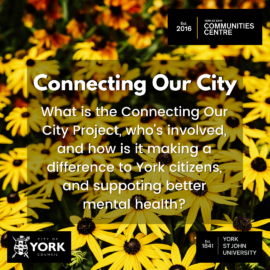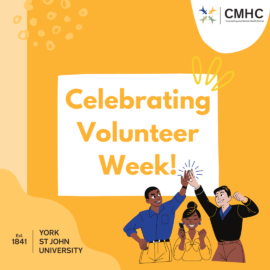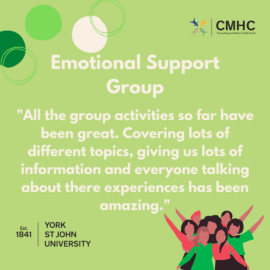Stuart Piper is a first year English Literature undergraduate at York St John University. On his Instagram blog @myrunningveganjourney, Stuart has documented his journey from living with long undiagnosed rapid-cycling bi-polar disorder, and after experiencing burnout in an urban corporate environment, he radically changed his lifestyle, and received help and support that enabled him to now live largely symptom free. For World Suicide Prevention Day, Stuart brings us some tips and guidance on how to seek, or give, support for those who are suffering.
1 in 4 people will experience a mental health problem of some kind each year in England, according to the charity Mind, and 1 in 5 people have suicidal thoughts over the course of their lifetime.
I was shocked at how high that statistic is when I researched to write this blog for World Suicide Prevention Day. Not least because 1 in 5 people do not die by suicide, nothing like anywhere near that number – so there is great reason for hope if you are currently suffering with these thoughts.
The overall number of people suffering is on the up however, and so an increasing number of people are asking how they can support their loved ones. Many people worry that asking a friend about suicidal thoughts might encourage someone to go ahead, whereas to actually broach the subject to a friend having a tough time is more likely to give them the space to talk about their thoughts and make completion less likely. The Samaritans recommend:
“Evidence shows asking someone if they’re suicidal can protect them. By asking someone directly about suicide, you give them permission to tell you how they feel, and let them know that they are not a burden. If someone does let you know that they are having suicidal thoughts, always take them seriously. You don’t have to be able to solve their problems. But, if you feel you can, offer support and encourage them to talk about how they’re feeling”.
Comedian and self-described “anti-social influencer”, Joe Tracini, inspirational in his honesty about living with, but successfully surviving suicidal thoughts, often reminds me of the importance of simply being kind to each other.
He wrote on Twitter as advice for what one might say if someone admits to you their fatalistic thoughts: “The kindest thing I could hear is “can I do anything?”. They probably can’t, but the act I’ve been listened to & not judged reminds me there’s something worth staying for”.
When asked what he wished he could have said to himself at his lowest, Joe’s totally brilliant answer was:
'There will always be a moment that’s coming where you won’t feel like that, please wait for it.'@joetracini, who has suffered with depression and suicidal thoughts, shares his powerful message for dealing with mental illness.
For helplines: https://t.co/gJOUQ4Nx4Q #Lorraine pic.twitter.com/OqrW2Wbygt
— Lorraine (@lorraine) September 19, 2018
This Too Shall Pass
While origins of this mantra is debated by scholars, “This Too Shall Pass” is one of the most powerful and effective things I have learnt to say myself when trying to support myself, and someone who is the eye of their own storm.
Coping Strategies
Guidance for “coping right now” from the NHS and Rethink.org if suicidal feelings are acute are:
– try not to think about the future – just focus on getting through today
– stay away from drugs and alcohol
– get yourself to a safe place, like a friend’s house
– be around other people
– do something you enjoy, such as spending time with a pet
However, if you are in immediate danger, there are emergency guidelines at the bottom of this blog.
Accessible Counselling
CMHC offers high quality and affordable counselling and mental health services to communities outside York St John University. Their one-to-one counselling service can help with a range of difficulties, and are offered on a sliding scale between £10 – £50 dependant on what you are able to pay – for more information you can see their leaflet here, or you can complete their self-refferal form. Additionally, they provide a free to access Bereavement Support Group and Emotional Support Group.
Some Thoughts for a Future
I have experience suffering with rapid cycling bi-polar disorder and was told, when at the depths of a depression, about the importance of trying to choose to have faith that things could get better. Not that they are guaranteed to, just that they could. Being brave enough to choose to hope.
Faith after all, can be defined as “hope without guarantee”. That concept got me through my hardest struggles at times, earlier in life. I remember feeling pessimistic and almost aggravated when being told it was possible to one day experience living symptom-free from my condition, yet that did indeed transpire, after time.
“When it is dark enough you can see the stars” – Martin Luther King
“Life isn’t how you survive the thunderstorm, but how you dance in the rain.” – Adam Young
Sunday Times Best-Selling author Matt Haig, who holds an honorary degree from York St John University, wrote Reasons To Stay Alive, a compelling guide on how to find resilience and peace in order to keep calm and carry on. In his most recent best-seller The Comfort Book, he describes his own survival from near suicidal depression fundamentally depended on a journey to acceptance (and I couldn’t really finish this blog with any better words than his):
“For many years before my breakdown… I had trouble with just being. […] The only problem is you can’t run away from yourself. Wherever you go, you’re always there… Running away from yourself is like trying to run away from a lamppost with a bungee cord tied around you. Sooner or later you are going to spring back and have a mighty bump. […] Or in my case a total breakdown. A full smorgasbord of doom. Panic disorder, depression, OCD, agoraphobia, and a belief that I wouldn’t be able to go on living so much. Which is the irony of the course. My desperate desire to avoid pain and discomfort led me to feeling the worst pain and discomfort of my life. It trapped me inside it.
And to get out of that I had to ultimately find some kind of acceptance. […] At some point, you have to accept your own reality. Even if that reality includes depression and fear and pain… And when you accept it you feel other things too. The more genuinely pleasurable things. The pleasure that can be found by being yourself rather than escaping yourself. […]
I didn’t need to go out and grab life. I was life”.
Advice for Emergencies
If you think someone is in immediate danger, the quickest way to help is to call an ambulance on 999.
If you yourself feel are in emotional crisis, the NHS website recommends you ring 111.
Help is available from the Samaritans, 24 hours a day, by calling 116 123 or text SHOUT to 85258.
If less urgent, Samaritans also advise that sometimes writing down your thoughts and feelings can help you understand them better, and if you email jo@samaritans.org they say a reply should come within 24 hours. What an amazing charity they are.
If you are experiencing any mental health problem or supporting someone else, you can call SANEline on 0300 304 7000 (4.30pm-10.30pm every day).
And there are more specific services available listed on the MIND website.



